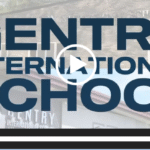Navigating Employment Pressures: The Correct Approach for College Students in Light of the “Yang Maoyue” Incident
Navigating Employment Pressures: The Correct Approach for College Students in Light of the “Yang Maoyue” Incident
The “Yang Maoyue” incident has brought to light the immense employment pressures faced by college students, highlighting the social challenges they encounter in today’s competitive job market. The incident occurred when Yang Maoyue, a popular internet personality with millions of followers, posted a video that mocked the difficulties faced by young people, particularly the Generation Z, in finding jobs. His comments, such as “Isn’t it easy to find a job?” and “If you can’t even get into the workplace, how can you reform it?” were perceived as insensitive and condescending, leading to a backlash from the public. As a result, Yang Maoyue saw a significant drop in his follower count, losing nearly a million followers within three days
. This incident underscores the need for college students to adopt the right strategies to tackle employment pressures effectively. To start with, students must recognize the reality of the job market and align their expectations accordingly. The allure of immediate high-income employment post-graduation can be misleading. It is essential for students to understand that building a successful career is often a gradual process that requires patience, perseverance, and a willingness to start from entry-level positions.
What’s more, continuous learning and skill development are imperative. The job market is dynamic, with evolving demands that traditional academic programs may not always meet. Students should proactively seek out additional training, workshops, and internships to acquire practical skills that are in demand. This proactive approach not only enhances their employability but also equips them with a competitive edge.
Moreover, cultivating soft skills is equally important. Employers increasingly value attributes such as effective communication, teamwork, and problem-solving abilities. Engaging in extracurricular activities, part-time jobs, and volunteer work can significantly contribute to the development of these skills, making students more attractive to potential employers.
Setting realistic and attainable goals is another key strategy. Instead of striving for instant success, students should focus on short-term and long-term objectives that are achievable. This approach helps maintain motivation and provides a clear direction for career progression.
Ultimately, seeking guidance from mentors can be invaluable. Mentors offer insights, share experiences, and provide support in making informed career decisions. Their guidance can be instrumental in navigating the complexities of the job market.
In conclusion, the correct approach for college students facing employment pressures involves a combination of realistic expectation setting, continuous learning, soft skill development, goal-oriented planning, and mentorship. By embracing these strategies, students can better prepare themselves for the challenges of the job market and pave the way for a successful career.
Tim Zhao





